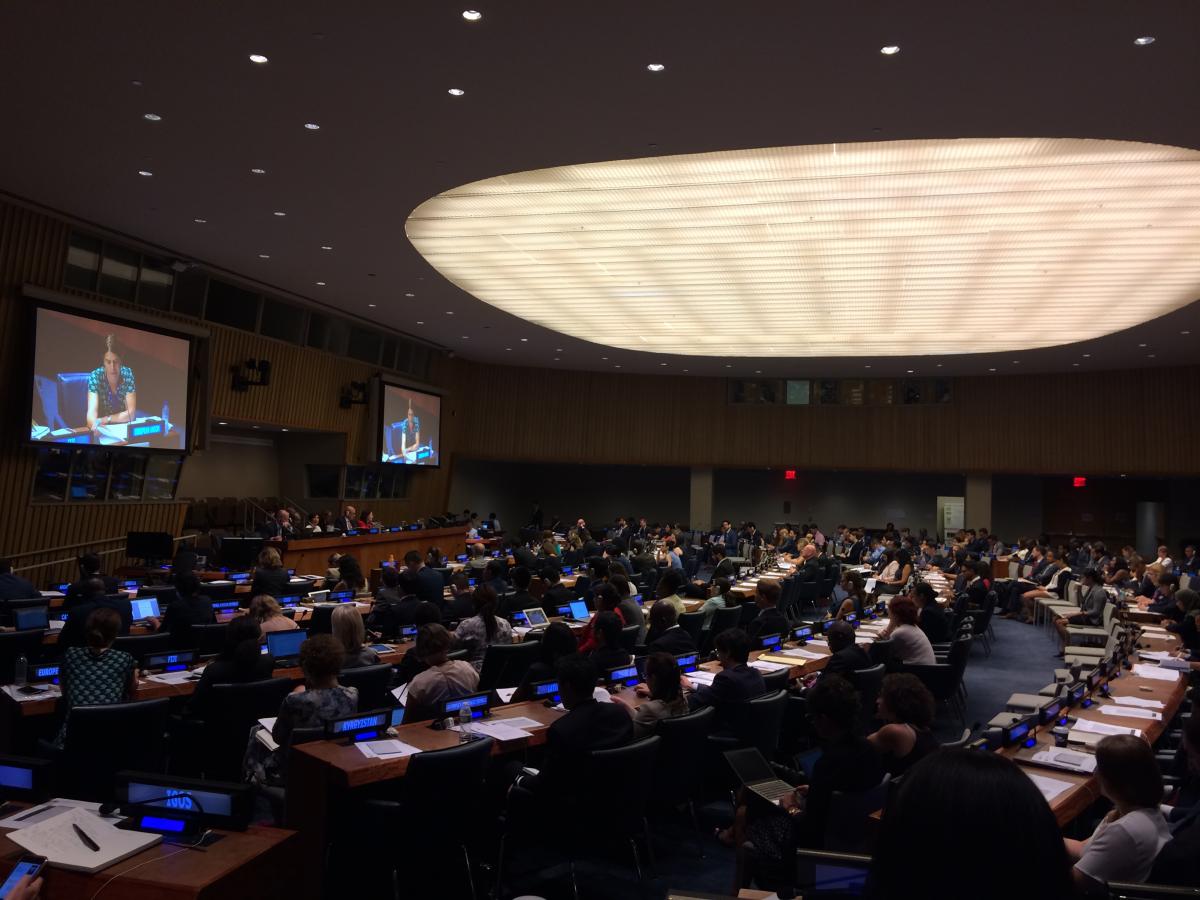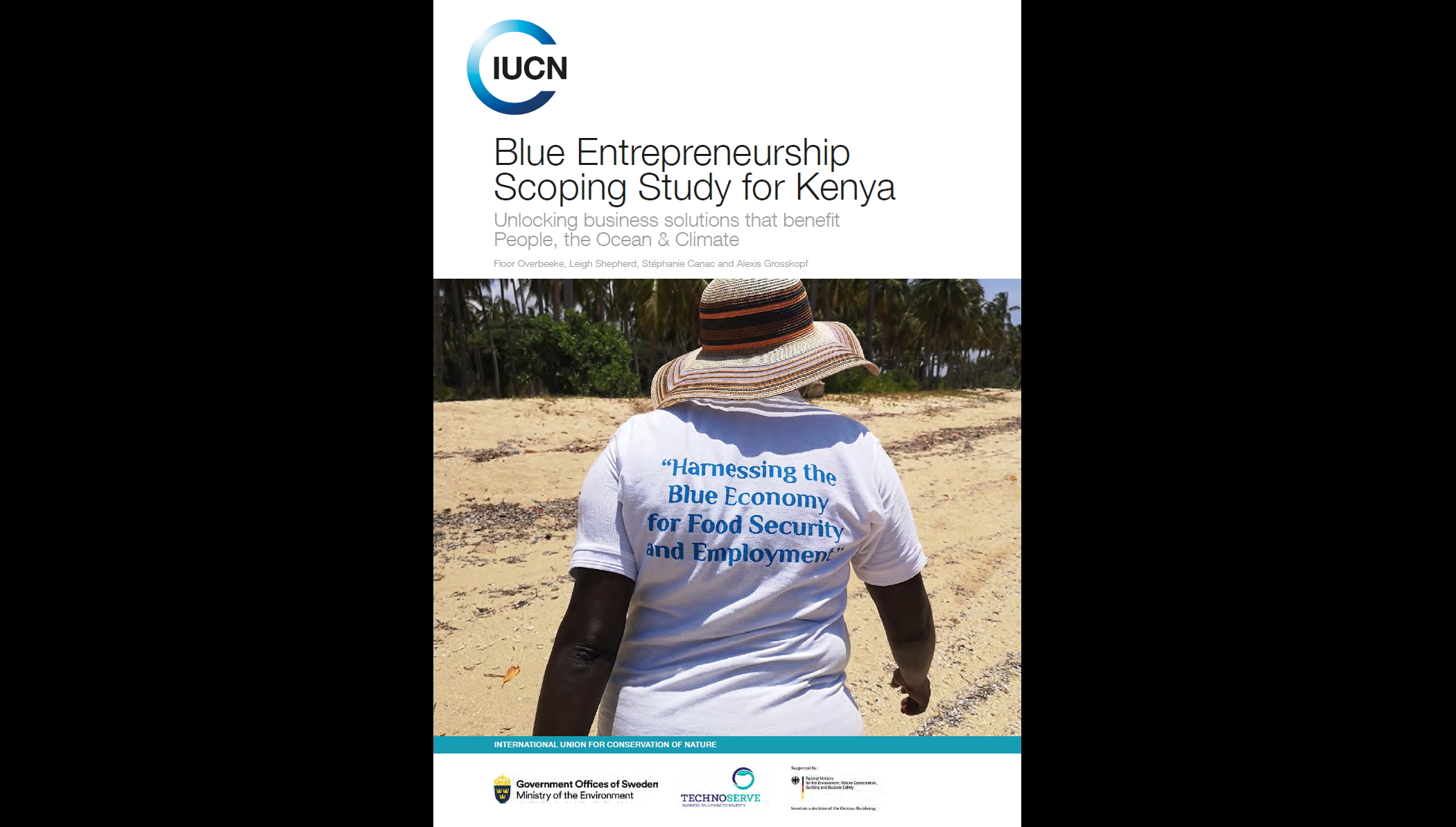“Towards a Global Pact for the Environment” — Successful outcome at the Organizational Session of the Ad Hoc Open-Ended Working Group in New York, 5-7 September 2018, by Victor Tafur
To address possible gaps in international environmental law and environmental related instruments, the United Nations General Assembly adopted resolution 72/277 of 10 May 2018 entitled “Towards a Global Pact for the Environment,” which established an Ad hoc Open‑ended Working Group (OWG) to consider a technical and evidence-based report to be prepared by the Secretary General (SG).

Photo: Victor Tafur
Resolution 72/277 established an Ad hoc Open‑ended Working Group (OWG) to consider a technical and evidence-based report to be prepared by the Secretary General (SG) that identifies and assesses possible gaps in international environmental law and environment-related instruments with a view to strengthening their implementation, which is expected by the end of November 2018. The OWG has been mandated to present its recommendations to the General Assembly during the first semester of 2019. Such recommendations are expected to provide a platform to discuss possible options to address these gaps, which may include the need to convene an intergovernmental conference to consider adopting an overarching international environmental law instrument.
To kick-start the process, the Open‑ended Working Group (OWG) held a three-day organizational session at United Nations Headquarters in New York from 5-7 September 2018, presided by co-chairs H.E. Francisco António Duarte Lopes, Permanent Representative of Portugal and H.E. Amal Mudallali, Permanent Representative of Lebanon, specifically to determine matters related to the organization of the work of the OWG, including the dates, duration and number of its substantive sessions.
The organizational session was attended by Member States as well as non-governmental organizations in consultative status with the Economic and Social Council, including ICEL, and others that were accredited to relevant environmental conferences and summits. The UN Environment New York Office provided secretariat and logistical support for the meeting.
The organizational session of the OWG concluded its work successfully, after an “informal paper of the co-chairs on the provisional agenda and annotations thereto for the first substantive session” of the OWG—the most contested agenda item of the meeting—was circulated mid-morning on the third day, and consensus was reached by 1pm. The co-chairs’ steadfast focus and guidance as well as constructive engagement by all groups and Member States contributed to a positive outcome.
In sum, the OWG made the following decisions on the substantive sessions to be held in Nairobi during the first semester of 2019:
1. Number of substantive sessions: 3
2. Dates of substantive sessions: 3
▪ First session beginning 14 January 2019
▪ Second session beginning 18 March 2019 (after UNEA-4)
▪ Third session beginning 20 May 2019.
3. Duration of the substantive sessions: 3-5 days
4. Adoption of provisional agenda for the first substantive session of the OWG
5. Authorization to the co-chairs to finalize the meeting report based an approved outline
OWG members were informed — by the UN Environment representative in New York — that the SG’s report that identifies and assesses possible gaps in international environmental law and environment-related instruments is expected by November 30, 2018. It will include identification of gaps in environmental law, governance structure, implementation and effectiveness of international environmental law. The UN Environment representative also reported on the status of the special voluntary trust funds in support of the OWG process and for the participation of developing countries in the OWG mandated by resolution 72/277, an issue of concern to many delegations. It was reported that contributions had reached US $1.6 million, including a second contribution by France in the amount of US $585.000.
Author
 Photo: Victor Tafur
Photo: Victor Tafur



